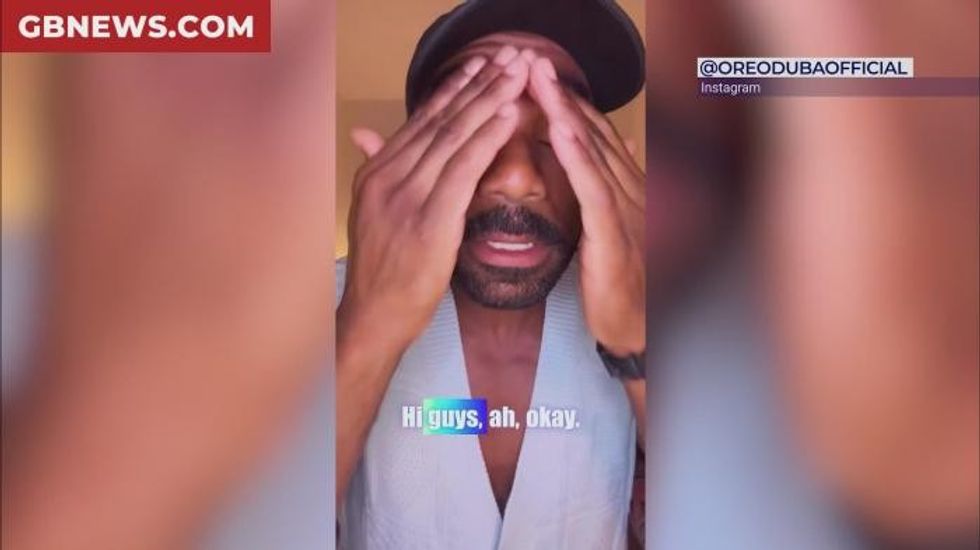Television personality Ore Oduba has tearfully revealed he fell prey to an elaborate online fraud, despite previously presenting a BBC programme about avoiding scams.
The 39-year-old shared his ordeal through a six-minute Instagram video on Sunday evening, struggling to maintain composure whilst admitting he’d been deceived by fraudsters posing as American self-help expert Mel Robbins.
“I’m ashamed, I’m embarrassed and I’m human,” the former Strictly Come Dancing champion wrote beneath the emotional footage. “Did not think I would be the kind of person who could be scammed, but this proves it really can happen to anyone.”
The presenter, who formerly hosted BBC’s Claimed and Shamed documentary series about insurance fraud, expressed particular distress that artificial intelligence had been weaponised to make the deception more convincing.
The scam originated following Oduba’s appearance on ITV’s Loose Women, where he enthusiastically discussed how Robbins’ philosophy had transformed his life.
The presenter had specifically praised her book The Let Them Theory, which advocates focusing solely on matters within one’s control.
Following the broadcast, Oduba shared the interview across social media platforms, tagging Robbins’ podcast and various associated accounts. His public endorsement caught the attention of fraudsters who subsequently orchestrated their scheme.
“I reposted that interview, I tagged the Mel Robbins podcast, tagged the Let Them Theory, tagged Mel, tagged everybody who cared,” Oduba explained in his video confession.
The scammers exploited his genuine admiration for Robbins, whose podcast ranks amongst America’s top 15 with over 20 million subscribers and whose self-help theories have gained significant traction online.
Shortly afterwards, Oduba’s agent forwarded what appeared to be correspondence from Robbins’ podcast team. The presenter’s emotional response was immediate and overwhelming.
LATEST DEVELOPMENTS:
David Beckham insists ‘it’s not funny’ as he shows off hair mishap as Victoria mocks ‘it’s TERRIBLE’Farage and Kuenssberg clash branded ‘unwatchable’ as BBC viewers fume over ‘disgraceful’ interviewJeremy Clarkson delivers damning verdict on lowering vote to 16 as he rips into Labour: ‘Nightmare!’
“I could have cried – they knew who I was! I got an email from the Mel Robbins podcast team,” he recounted. In his reply, Oduba poured out his gratitude, explaining how Robbins had transformed his life and expressing disbelief at being recognised.
When the supposed invitation to appear on the podcast arrived, Oduba’s emotions intensified. “I wrote back and I said, ‘Mel, I’m holding back tears. Is this for real? You must have AI helping you correspond with all of these fans,'” he recalled.
The response seemed to confirm his dreams: “Mel wrote back, ‘of course it’s me – it’s Mel Robbins.'”
However, upon closer examination, Oduba noticed troubling inconsistencies. The correspondence had arrived from a Gmail address rather than an official domain, and Robbins’ surname had been misspelt in the email address.
These red flags prompted him to contact Robbins’ public relations team through her verified website. Their response confirmed his worst fears – the invitation was fraudulent and any emails from Gmail accounts should be considered scams.
“By the way, I used to host a show about scammers. I have watched enough Watchdog to last a lifetime – that doesn’t stop me being in the middle of it,” Oduba admitted. “I never thought I’d be the person that would be scammed.”
The revelation left him devastated, particularly given his professional background in consumer protection programming.
Oduba emphasised how artificial intelligence had made the deception particularly convincing. “Especially with the help and manipulation of AI. I’m terrified how easily I was ‘hooked’. It was SO convincing, it’s scary,” he stated.
Despite the ordeal, the presenter maintains his admiration for Robbins and expressed gratitude for her team’s swift response.
“Truth is I turned an emotional blind eye to something I so deeply wanted to believe was for me and nearly got myself into a whole heap of trouble,” he reflected.
His key message to followers was unequivocal: “Listen to your gut, it’s most likely telling you the truth. And don’t get scammed, it’s no fun.”
Oduba concluded by acknowledging his fortune in discovering the fraud before any financial damage occurred, warning that others might not be so lucky.
